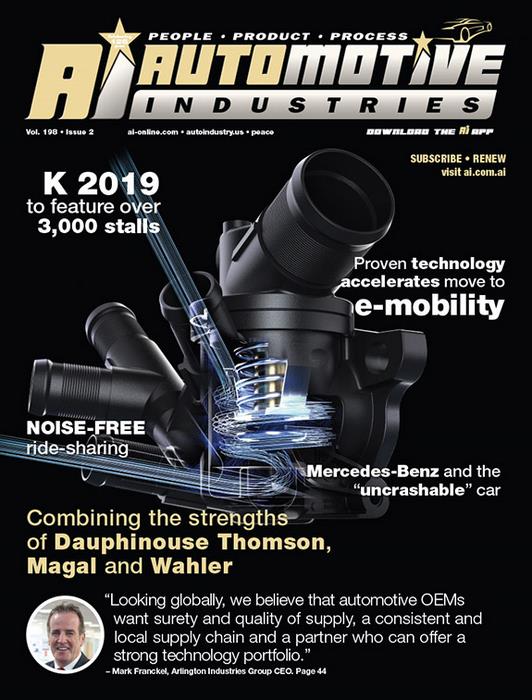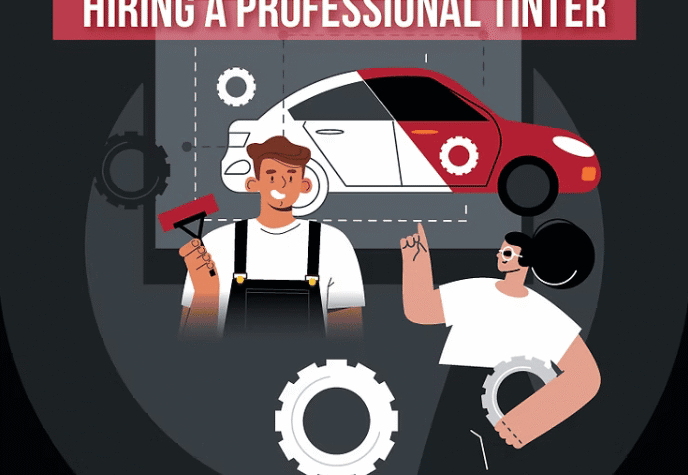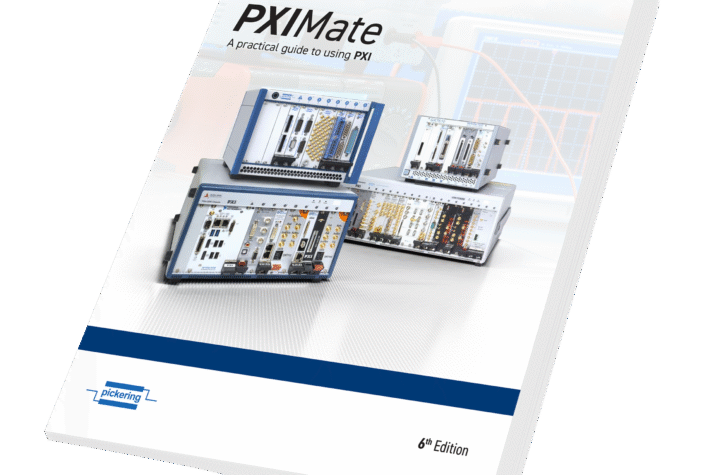
OEMs looking to reduce time, cost and carbon footprint are turning to single-source suppliers providing a consolidated supply chain. One of the leaders is Arlington Automotive. Its capabilities include design, manufacture, pressing, coating, welding, assembly and logistics. The manufacturing capacity ranges from intricate, safety critical pressings, to complex and fully tested assemblies. The company has been on the acquisition trail in order to offer a more complete package. In May 2017 it acquired the mechanical engineering firm Magal Engineering, a UK-based automotive component and system supplier with plants worldwide and a global automotive industry reputation spanning over 50 years. This strengthened Arlington Automotive’s position as one of the UK’s largest independent automotive component and sub-assembly businesses. The Magal Engineering team is in the process of developing a new five-way transmission warming valve for a major vehicle manufacturer. The component is able to operate on various engine types and vehicle platforms. It reduces emissions by around 2%, and improves fuel economy. More recently Arlington acquired the Wahler thermostat business from Fortune 500 company Borg Warner. Restructuring of the company followed in order to optimize the range of products and services offered to clients. Mark Franckel, Arlington Industries Group CEO, said: “We are very pleased with our latest acquisition. The Wahler brand stands for premium quality and this is a significant move for Arlington Industries. Our new structure will deliver great opportunities for our customers and employees worldwide.”
Automotive Industries (AI) asked Franckel, to tell us more about the acquisition of the Wahler thermostat business.
Franckel: Arlington Industries Group is committed to enhancing value in the supply chain for our global OEM customers. The acquisition of Magal Engineering was critical to providing thermostats as well as plastic housings and valves for our existing assembly business. Although Magal Engineering had a strong European presence and joint ventures in China, Turkey and India, we needed to increase our manufacturing and line-side support to our key global OEMs – a fact which makes us unique in the industry today. Wahler’s technology in electric, hybrid and combustion are well established, and combined with a strong aftermarket business, was the perfect fit for our supply chain strategy.
AI: What are the synergies between Arlington and Wahler? Franckel: There are many synergies between Arlington and Wahler. Principally, their locations dovetail into our global presence and we now manufacture in: • EUROPE – UK, Germany, France and Slovakia (new green field site) • ASIA – China (WOFE & JV), India (JV) and Turkey (JV) • AMERICA – North (moving to a new site within the next 12 months) and South (Brazil). We also share many of the same customers and will therefore be able to offer a wider and stronger technology portfolio.
AI: How will it build on Arlington’s strengths in automotive solutions? Franckel: Looking globally, we believe that automotive OEMs want surety and quality of supply, a consistent and local supply chain and a partner who can offer a strong technology portfolio. Our supply chain strategy of acquiring complementary businesses around the world is driven by listening to our customers and delivering what they need. We are committed to building a strong and robust supply chain to support all of our OEM customers. To increase the product focus, we have created three new divisions: • Arlington Thermal Management – Wahler, Dauphinoise Thomson and Magal • Arlington Engineered Systems – Magal Cables, Assembly (formally Remploy Automotive) and Press, Weld and Paint (formally DPE) • Thermagal – Industrial and Sanitary Thermostats
AI: What new technologies do you see emerging from this acquisition? Franckel: With an increasing call for alternative energy vehicles, advances in hybrid and electric thermal management are in high demand. The automotive industry is committed to building lighter, safer and more fuel-efficient cars, whether that is combustion, electric or using alternative fuels. We will be increasing our investment in R&D and engineering, and establishing a center of excellence for thermoplastic, wax thermostats and electric valve technology which will enhance our already established research and development centers.
AI: How does the Wahler acquisition tie in with your earlier acquisition of Magal? Franckel: With Magal, Dauphinoise Thomson and Wahler we can offer our customers unrivalled choice in technology and brand. Wherever an OEM is located in the world, we have a local presence to deliver. Magal Engineering is known for exceptional technology in combustion applications. That, coupled with Wahler’s technology in electric, hybrid and combustion thermal management, means Arlington can provide customers with multiple technologies from a single source.
AI: What global strategy does Arlington have in the OEM and aftermarket sectors? Franckel: Our global strategy has not changed from when we set out. We want to provide our OEM customers with a consistent service and surety of supply wherever they are in the world. With an established global presence, we can offer an unrivalled portfolio of thermal management products for any vehicle. Our Engineered Systems division will provide value in the supply chain by delivering complete module assemblies direct to track. With integrated manufacturing, our assembly sites can ensure a seamless supply of high quality and complex assemblies. Aftermarket will have a dual route to market. Our products will be supplied through preferred partners, supported by a dedicated online presence to ensure next day delivery. We are committed to be “easy to do business with” and ensure the global aftermarket is supplied with high-quality and original parts.
AI: Tell us about Thermagal – how will this brand further your automotive offerings? Franckel: Thermagal is not limited to automotive applications. Yes, our technology is built on 50+ years of automotive experience, but thermal management is required across an array of applications and sectors. Sanitary and heating for domestic and industrial applications requires state-of-the-art thermal management technology and we have developed a range of products to suit a growing market.












More Stories
Automotive Industries (AI) Newsletter April 2025
GlobalLogic Pioneering Software-Defined Vehicles, AI Innovation, and Sustainable Solutions for the Future of Automotive Mobility
Cybord TCI – The Future of Manufacturing Integrity